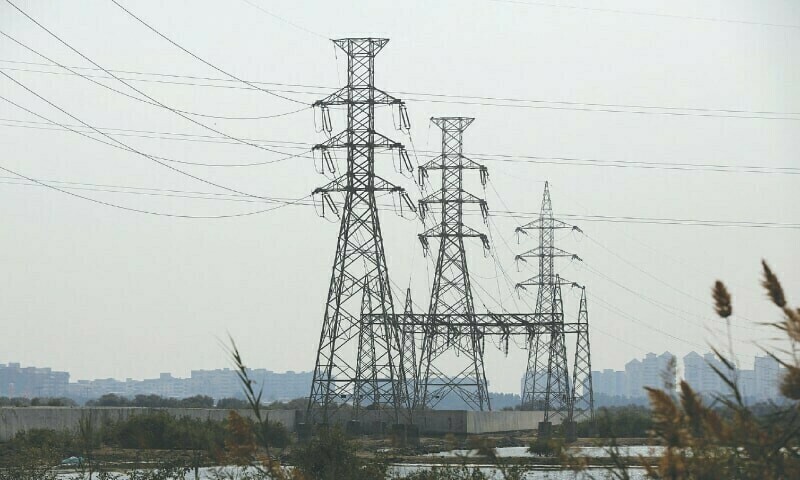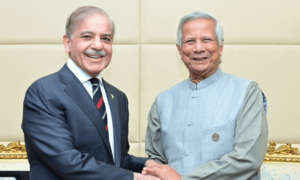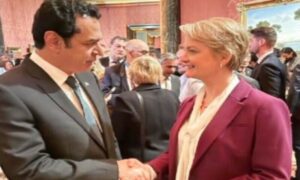• Lender sanctions mere Re1 reduction in power rates, much lower than govt claim of Rs8 per unit relief
• Proposed easing of electricity costs may take months to materialise due to IHC stay order, regulatory hurdles
• Federal cabinet approves additional Rs10 per litre petroleum levy on petrol, diesel
ISLAMABAD: As more details unfold about the staff-level agreement, the International Monetary Fund (IMF) on Thursday disclosed that it had allowed only a Re1 per unit reduction in power tariff against a grid levy imposed on industrial captive power plants.
However, on the same day, a bench of the Islamabad High Court (IHC) stayed this move for over a month.
“The programme allows some explicit tariff differential subsidy and revenue from CPP (captive power plants) firms can be used for reducing Rs1 per kWh (kilowatt-hour) electricity price. The benefit of the reduction in the prices will go to everyone,” IMF Resident Representative in Islamabad Mahir Binici told journalists on Thursday.
This apparently did not support claims by some cabinet members and government officials about a Rs8 per unit reduction in power tariff — still a wish list on paper and subject to various procedural and regulatory processes, including the mandatory clearance from the IMF. The purported reduction is not in sight to reach consumers in a few weeks, if not in a couple of months, owing to legal and regulatory processes.
Meanwhile, the federal cabinet has reportedly approved an additional Rs10 per litre petroleum levy on petrol and diesel, imposed on 15 March, to offset a promised Rs1.75 per unit reduction in electricity tariffs as promised by the prime minister.
The additional levy is expected to generate around Rs15 billion monthly, or Rs175bn-180bn annually, depending on actual sales. However, this will have to pass through regulatory processes, and the IMF has not yet formally cleared it as well.
The government had given a written undertaking to the IMF to disconnect the gas supply to industrial captive power plants for self-generation, forcing them to shift to the national power grid facing surplus capacity and the resultant huge capacity payments amid falling electricity demand. Influential lobbies, however, came into play after the commitment to revisit the decision on different pretexts.
The IMF held its ground with a modification that in cases where gas disconnection was technically unviable, the gas prices would be increased to LNG level and a further grid levy would be imposed to eradicate the huge price differential with grid power and the revenue collection from that grid levy would be used to lower average electricity tariffs.
Earlier this month, the government imposed a grid levy of Rs791 per million British thermal units (mmBtu) on LNG supply to CPPs, enhancing their overall price from about Rs1,700 per unit to about Rs4,300 over three years. Despite this, no action has been taken against the Rs2,600 per mmBtu benefit previously enjoyed by around 1,000 industrial units over the remaining 5,500 industries.
This grid levy has now been stayed by Justice Khadim Hussain Soomro of the Islamabad High Court until the next hearing on April 30 on the request of about 20 industrial units, most of them related to the textile sector. Until then, even the Re1 per unit reduction allowed by IMF cannot reach consumers.
Sources said there was no revision in revenue target committed to the IMF but there would be a tacit understanding that any fluctuation in economic growth rate and inflation would ultimately be accounted for as long as primary budget surplus of 1pc of GDP remained protected and gradually increased to 2pc of GDP by fiscal 2028 — the final year of the IMF’s Extended Fund Facility (EFF) programme.
Sources said the authorities would make all possible efforts to secure an executive board meeting of the Fund on the sidelines of the IMF-World Bank spring meetings scheduled for April 21 to 26 for the approval of the staff-level agreement and the disbursement of next tranche, but there was a reasonable likelihood of its procedural delays towards mid-May or early June.
While the two sides will remain in contact, another IMF mission is expected to visit Islamabad by mid-May to finalise macroeconomic projections for the fiscal year 2025-26 and budgetary measures.
The Prime Minister’s Office (PMO) had announced on March 15 that the premier had decided to maintain the petroleum prices at the existing level against up to Rs13 per litre worked out by the oil regulator and petroleum division with a promise to transfer its financial impact to electricity consumers.
Meanwhile, the National Electric Power Regulatory Authority (Nepra) is reviewing petitions from power distribution companies (Discos) for annual base tariff revisions. So far, only seven independent power producers have approached Nepra for revised tariff adjustments following negotiations with a civil-military task force.
Sources said the IMF had also not allowed a reduction in tax rates on real estate transactions, but a 2pc federal excise duty on first transactions may be reduced in the coming budget.
Published in Dawn, March 28th, 2025











